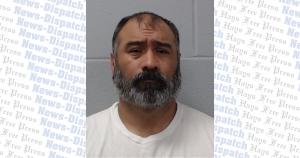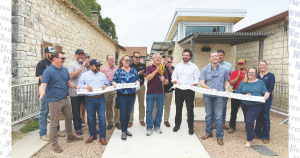PHOTO BY BRITTANY ANDERSON Sen. John Cornyn, left, and Hays CISD Superintendent Dr. Eric Wright. Following a roundtable discussion on the fentanyl crisis with HCISD leadership, law enforcement officials and other community members, Cornyn held a press conference.
Buda, Community, Education, Hays County, Kyle, Main, News
Cornyn, HCISD address fentanyl crisis
BUDA — The Hays County community is continuing to fight the fentanyl crisis. This time, it enlisted the help of state representatives.










